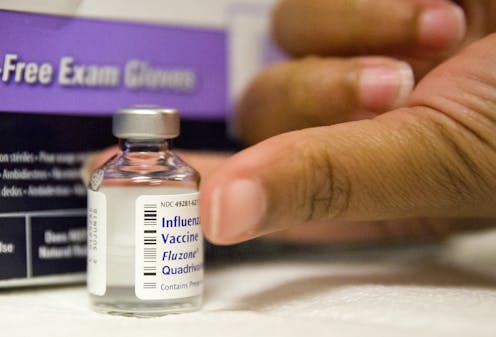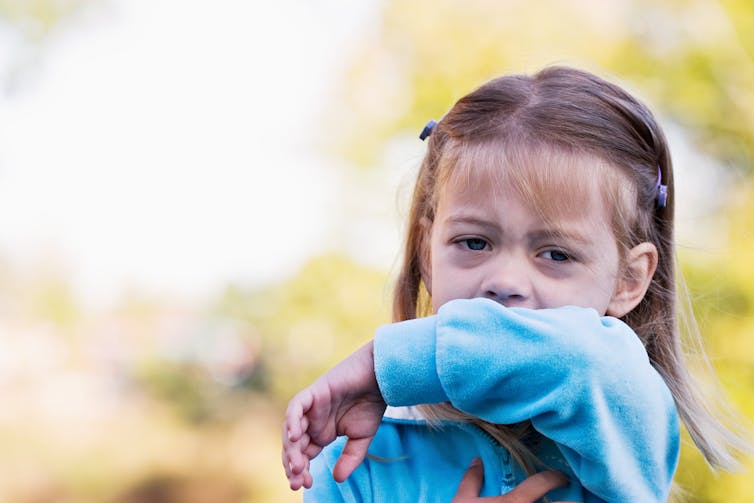Get a flu shot now – for your benefit and your neighbors'
The flu shot is most effective if you receive it by the end of October. With 80,000 deaths from flu during last year's flu season, a doctor explains why you should act now.

If you do nothing else the next few days, get a flu shot.
The best time to get a flu shot is by the end of October, the Centers for Disease Control and Prevention advises. Considering the severity of last year’s flu, it is especially important for everyone over age six months to be vaccinated. This includes pregnant women.
Last year’s flu killed 80,000 people, the CDC reported, making it the most lethal flu epidemic in decades. Also, about 710,000 people were hospitalized because of it.
As of Oct. 6, 2018, 183 of those deaths were in children, the CDC reported. Additionally, there has already been one pediatric death this current flu season. And 80 percent of those children who died last year along with the recent pediatric death had not been vaccinated.
You play an important role in stopping the spread of flu, not just to yourself but to others. As a doctor and public health professional who has treated many people with influenza, I’ll explain why.
Protecting yourself, protecting others
The influenza vaccine has been shown to be one of the most important preventive measures against the flu. Though the effectiveness of the vaccine can vary – and last year’s rate was low, at about 40 percent – this still meant that the flu vaccine reduced a person’s overall risk of having to seek medical care at a doctor’s office for flu illness by 40 percent. Considering the seriousness of the illness, however, you need all the protection you can get.
And the vaccine reduces the severity and potential complications of your illness if you do get the flu. A large study published in 2017 of patients hospitalized during the 2013-2014 flu season found that vaccinated adults were 52 to 79 percent less likely to die than unvaccinated patients. Put another way, a hospitalized flu patient who was unvaccinated was two to five times more likely to die than someone who had been vaccinated.
Almost everyone can receive the flu vaccine. Exceptions include babies younger than six months and people who have serious reactions to the flu vaccine, like anaphylaxis, a life-threatening reaction.
Some people gets hives from eggs, but this is not considered a serious reaction. If you are one of these people, it is still OK for you to get a flu shot from standard providers. Even those who have a serious egg allergy can get the flu vaccine in a medical setting.
Getting the vaccine is not just good for you but also for the larger community. About 70 percent of the population needs to receive the flu vaccine to ensure what we call “herd immunity .” That happens when a critical portion of a community is immunized against a contagious disease.
When that occurs, most members of the community, including those who are not vaccinated, are protected against that disease because there is little opportunity for an outbreak. Even those who are not eligible for certain vaccines get some protection because the spread of contagious disease is contained. This can effectively stop the spread of disease in the community.
You might even consider getting the vaccine to be a civic duty.
Other things to know
While the vaccine has been shown to be one of the most important preventive measures against the flu, you can do other things, too. Wash your hands. If you cough or sneeze, cover your mouth or nose with your sleeve, not your hands. Avoid those who are ill. Stay home if you are sick.

Antiviral medication can help you feel better if you contract the flu, but it must be started early in your illness, so call your health provider when symptoms begin.
A new, higher-dose vaccine is available for the elderly. If you are 65 or older, ask your doctor about this. About 54 to 70 percent of hospitalizations for flu occur among people 65 and older. No matter which formulation you receive, it is essential to be vaccinated. Don’t miss the opportunity to do so.
Remember that getting the vaccine will not give you the flu. That is because vaccines today are made with killed viruses. A killed virus cannot infect anybody. If you hear someone say they came down with symptoms after receiving the vaccine, it could be because they had been exposed to flu before they were vaccinated.
Even if you can’t get to your doctor or pharmacy by the end of October, you should still get the flu vaccine. While the best immunity is conferred if you get the vaccine earlier, you will be protected.
And remember, even if it’s not a perfect match, it can protect you and your loved ones from getting a potentially life-threatening, yet preventable, disease.
Good advice: Stay home if you have the flu. Better advice: Get the flu vaccine!
Editor’s note: This is an updated version of an article that originally was published Oct. 23, 2016.
Dr. Patricia Schnabel Ruppert does not work for, consult, own shares in or receive funding from any company or organization that would benefit from this article, and has disclosed no relevant affiliations beyond their academic appointment.
Read These Next
Are heroes born or made? Role models and training can prepare ordinary people to take heroic action
Heroes take a personal risk for the common good. Some people may just be born with the personality traits…
Iran’s targeting of airport, ports and hotels in reaction to US strikes has forced Gulf nations onto
Qatar, the UAE and other Gulf nations have spent years cultivating an image of being an oasis of stability…
Will AI accelerate or undermine the way humans have always innovated?
An anthropologist’s new book lays out the formula for human innovation, from stone tools to supercomputers.…






